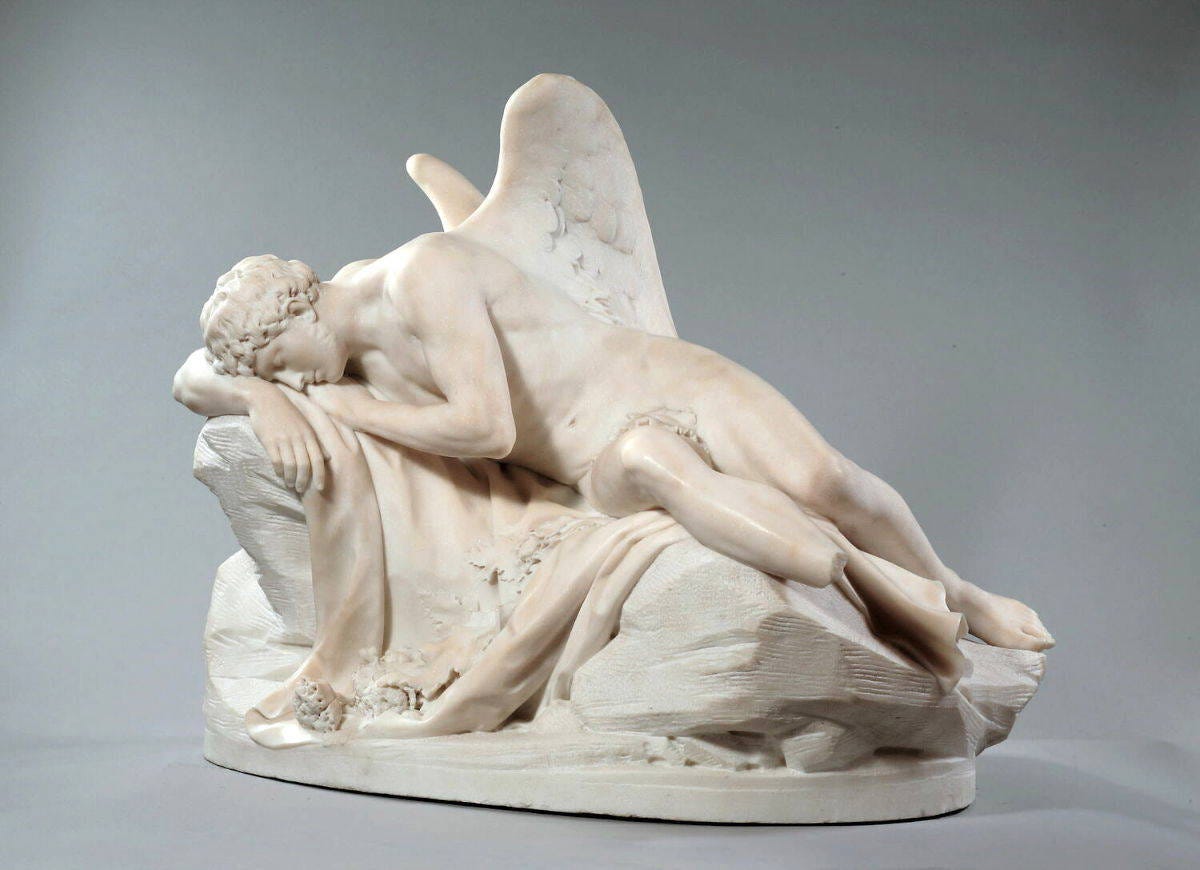“Mythology” Series:
Format: Each week we present a concise mythological story and draw direct parallels to contemporary AI concepts.
Goal: Highlight how modern technological dilemmas mirror ancient Greek tales, sparking interest about both subjects.
1. Mythological reference
In Greek mythology, Morpheus is revered as the god of dreams, endowed with the power to shape and reshape our perceptions of reality. Able to appear in the dreams of mortals, he weaves a tapestry of visions that blur the boundaries between the tangible and the fantastical. Through his ethereal influence, Morpheus reminds us that dreams are not merely illusions but also reflections of our innermost desires and fears—a realm where reality itself becomes malleable.
2. Parallel with AI and lesson from ancient mythology
Navigating the realm of generative AI
In our digital age, generative AI systems like DALL·E and GPT are ushering us into an era of “algorithmic dreams.” These technologies generate art, text, and synthetic media that challenge our traditional notions of creativity and authenticity:
AI-generated art and synthetic media: Just as Morpheus crafts vivid dreamscapes, modern algorithms produce images, narratives, and even music that can be indistinguishable from human-made creations.
Virtual worlds and immersive experiences: With VR and AR, users are stepping into digital realms that evoke the surreal quality of dreams, where the line between the real and the fabricated becomes ever more blurred.
Reimagining creativity: Generative AI fuels both innovation and debate. While it opens up vast creative possibilities, it also raises pressing questions about the value of human ingenuity versus machine-made outputs.
Lesson: balancing creative transformation and authenticity
Morpheus’s gift of shaping dreams teaches us that transformation is both wondrous and fraught with challenges. As Adrienne Mayor explains in Gods and Robots: Myths, Machines, and Ancient Dreams of Technology, ancient myths offer insights into modern dilemmas by revealing the double-edged nature of power. In the context of AI, algorithmic transformation can democratize creativity, yet it also risks distorting truth and undermining authenticity. Thought leaders like Jean Baudrillard, in Simulacra and Simulation, warn that as the simulated increasingly mimics the real, our ability to discern genuine experiences may deteriorate.
The challenge for today’s technologists and cultural critics is to harness these generative tools responsibly—fostering innovation while establishing ethical safeguards that preserve the integrity of our shared reality.
3. Reflections and questions to consider
Creativity versus deception
How can we encourage AI-driven creativity without blurring the lines between genuine expression and fabricated reality?
Authenticity in the digital age
What measures can be put in place to verify the authenticity of AI-generated content, and how can creators maintain transparency in their work?
Impact on human perception
As we immerse ourselves in algorithmically generated worlds, what effects might this have on our ability to distinguish fact from fiction?
Ethical and societal considerations
How should regulatory bodies and industry leaders address potential abuses of generative AI, such as the creation of deepfakes or misleading virtual experiences?
4. References
Iliad
(An epic narrative exploring themes of heroism and the shifting nature of reality, echoing the transformative power found in dreams.)Odyssey
(Homer’s classic journey that highlights the interplay between illusion and truth, paralleling the impact of generative AI on our perception.)Adrienne Mayor, Gods and Robots: Myths, Machines, and Ancient Dreams of Technology
(Explores how ancient myths can inform modern technological challenges, particularly in the realm of creative transformation.)Jean Baudrillard, Simulacra and Simulation
(Analyzes how simulated realities can become indistinguishable from the real, a concept increasingly relevant in the age of generative AI.)Technical documentation on generative AI (e.g., DALL·E, GPT)
(Provides practical insights into how these models operate and the challenges they present for creativity and authenticity.)Academic papers on AI ethics and digital identity
(Discuss contemporary debates about the role of AI in shaping human culture and perception.)




